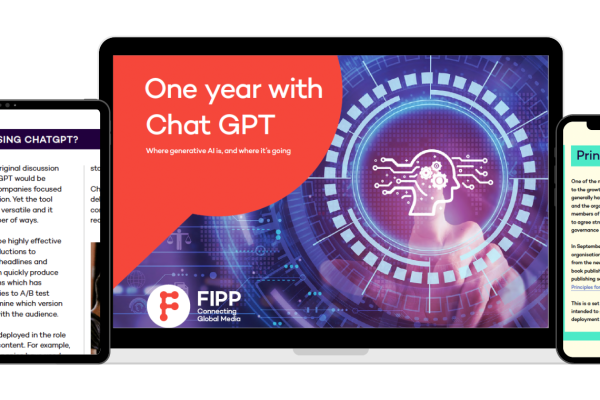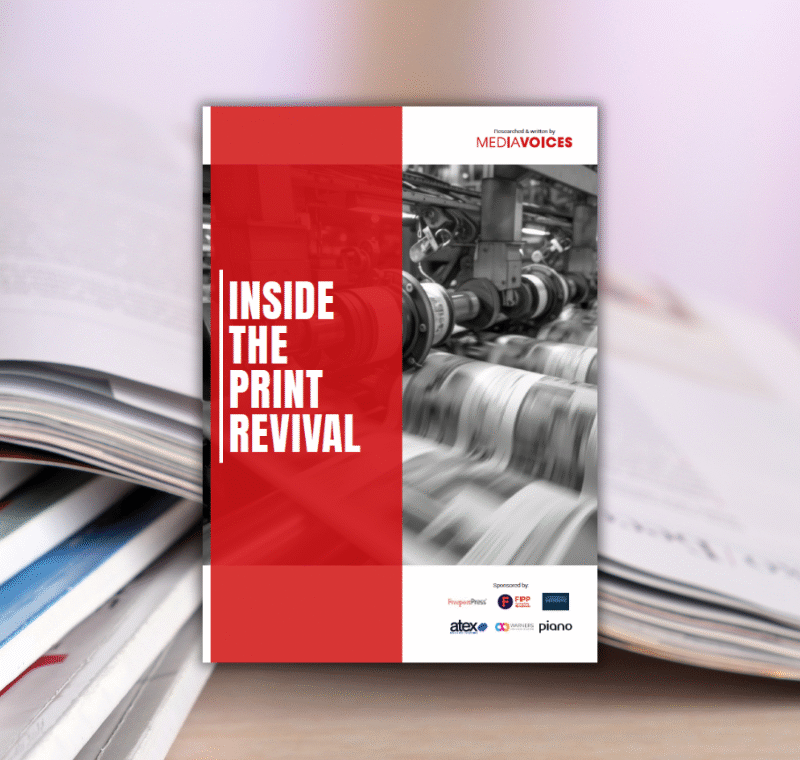New FIPP report: One year on from its launch, how has ChatGPT changed the media landscape?
How to balance the promise and peril of generative artificial intelligence is one of the most important debates taking place in the media industry today. And at the centre of that conversation sits ChatGPT, the large language model-based chatbot developed by OpenAI. A year after its game-changing launch, FIPP this week launches a new report looking at the uneasy relationship between generative AI and the media over the past 12 months.
One year after ChatGPT, exclusive to FIPP members, features AI experts, media consultants and publishing executives on how AI has impacted their industry and what may happen in the next few months and years.
“The striking thing about the reaction to ChatGPT is not just the number of people who are blown away by it, but who they are,” Paul Graham of Y Combinator points out. “These are not people who get excited by every shiny new thing. Clearly, something big is happening.”
The report explores the initial concerns media organisation had about ChatGPT – including the impact on SEO, staffing levels and the explosion of automated content factories – as well as the way Google has responded to everyone’s favourite new AI toy.
How is ChatGP being used?
While much of the original discussion about how ChatGPT would be used by media companies focused on content creation, the report shows how it has proved to be versatile and is used in a number of ways.
This includes creating introductions to content such as headlines and standfirsts, quickly producing a series of options which has enabled companies to A/B test options to determine which version resonates best with the audience.
It has also been deployed in the role of summarising content, with some media companies using the technology to paraphrase big reports, or even create pithy news stories from large numbers of words.
In addition to looking at how ChatGPT is being used, the report also explores which media groups have integrated the chatbot into their operations and which haven’t – from the proudly ‘out’ users, those who are dipping their toes in the water and the companies adopting an antagonistic approach.
United we stand
The study also explores how the growth of ChatGPT and AI generally has brought media companies and the organisations they are members of have together to agree structures for the use and governance of the technology.
An example of this arrived in September 2023 when as many as 26 global organisations, including representatives from the news, entertainment, magazine, book publishing and academic publishing sector, issued The Global Principles for Artificial Intelligence.
The principles, which included input and support from FIPP, state that AI tools must only be developed in accordance with established principles and laws that protect publishers’ intellectual property, brands, consumer relationships, and investments.
And as we look ahead to the future working relationship between new tech and media organisations, some experts stress the importance of companies automating.
“AI-first newsrooms where our cost base is reduced massively to then invest in quality original journalism is the future,” says Juan Señor, President, Innovation Media Consulting. “It frees journalists to do high-quality journalism.
“As the machines take over it will be time to rediscover our true value as original storytellers of what is newsworthy.”
You can download the full report here.
Not a FIPP member yet? You can join FIPP membership directly in the report page.










